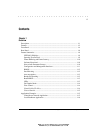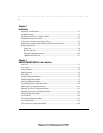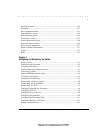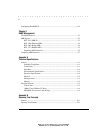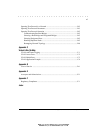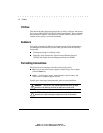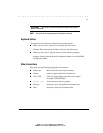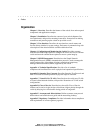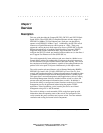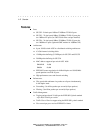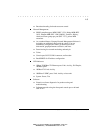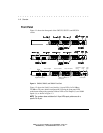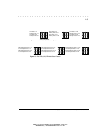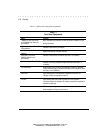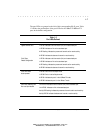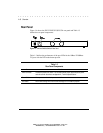
. . . . . . . . . . . . . . . . . . . . . . . . . . . . . .
1-1
Compaq SW3322/SW3323/SW3324 Dual-Speed Switch User Guide
Writer: Fran Spragens Project: Overview Comments: 355307-002
File Name:3324_1.doc Last Saved On:3/16/99 11:31 AM
Chapter 1
Overview
Description
This user guide describes the Compaq SW3322, SW3323, and SW3324 Dual-
Speed Switch. These IEEE 802.1D-compliant Ethernet switches support 24
IEEE 802.3u 100Base-TX Fast Ethernet ports. Each port can alternatively
operate as an IEEE 802.3i 10Base-T port. Additionally, the SW3324 switch
features two Gigabit Ethernet ports which operate at 1 Gb/s. These ports
support the various physical media transceiver flavors of IEEE 802.3z Gigabit
Ethernet through the use of modular Gigabit Interface Converters (GBICs).
Supported media includes multimode fiber, single mode fiber. You can
configure the SW3323 switch, pre-installed with a modular card, so that Ports 1
and 2 support Fast Ethernet over fiber (IEEE 802.3u).
The switch automatically learns addresses and stores them in a Media Access
Control (MAC) address forwarding table. Each port on the switch operates at
full Fast Ethernet wire speed with full address and frame filtering. The switch
has complete non-blocking performance, capable of forwarding minimum size
packets at full wire speed on all ports simultaneously in full duplex mode.
The switch contains advanced features such as Remote Monitoring (RMON),
IEEE 802.1Q virtual LANs (VLANs), IEEE 802.1p Class of Service, flow
control, and broadcast throttling. For network management, the switch includes
a standards-compliant Simple Network Management Protocol (SNMP) agent.
This agent allows network management station applications (such as Compaq
Networking Management Software, included with the switch) to collect and
present status and performance information about a switch. In addition, it
provides the ability to configure and control functions on the device. Network
management can also be performed in-band using the popular TCP/IP
application, Telnet. In addition, a serial console port allows out-of-band
management using a PC or ASCII terminal.
The switch is desktop or rack-mountable. LEDs on the front panel provide
information about the operating status of the switch. The back panel of the
switch contains the power connector and a power switch. Two fans maintain
ventilation and cooling for internal switch components.



